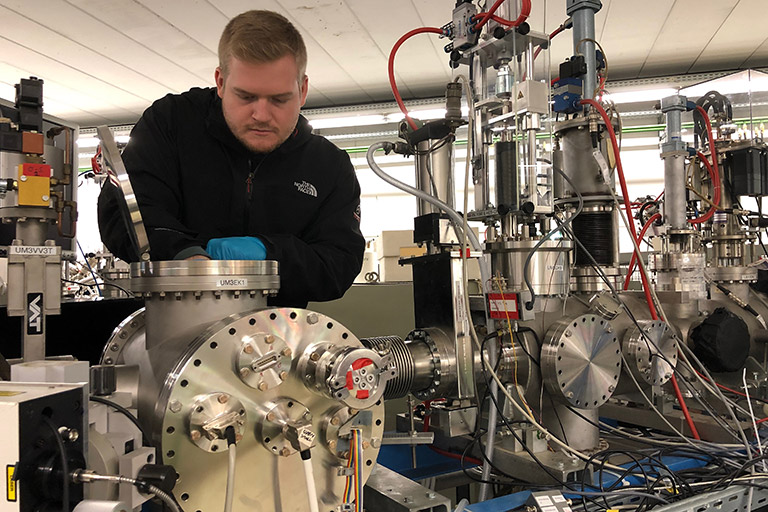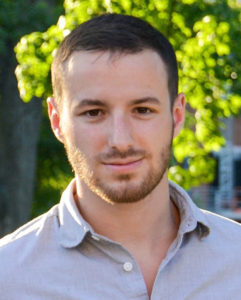
Will Cureton performing the experiment he presented on at the world’s largest ion accelerator facility at the GSI Helmholtz Center in Darmstadt, Germany.
NE doctoral students Will Cureton and Devon Drey were recognized for their outstanding scientific excellence for their oral presentations at the 2020 Materials Research Society Virtual Spring/Fall Meeting and Exhibit. Their presentations were 15 minutes each, and came with a prize of $500.
Will Cureton’s presentation, “Effects of Grain Size on the Radiation Response of CeO2, ThO2, and UO2,” discusses the investigation into the effect of microstructure on the radiation response of nuclear fuel materials.

Devon Drey
Cureton was able to help uncover key phenomena in the materials, which are directly relevant for the behavior of nuclear fuel in reactors. The results provide further understanding of fundamental mechanisms and thus can be used to influence the design of safer, more efficient nuclear fuel materials.
Devon Drey’s presentation, “Investigation of Disorder in Ho2Ti2-xZrxO7: Pyrochlore to Defective Fluorite Chemical Series,” discusses research using neutron total scattering to study in detail all structural aspects of disordering of pyrochlore to defect fluorite.
Pyrochlore oxides, and other complex oxides, are interesting to science not only because of their wide variety of desirable properties, such as ionic conduction and radiation tolerance, but also for their complex defect formation and disorder that often give rise to their properties.